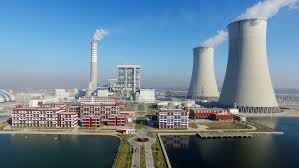ISLAMABAD : The National Electric Power Regulatory Authority (NEPRA) is receiving widespread appreciation from Karachi-based consumers and industrial groups for approving a negative Fuel Charges Adjustment (FCA) of Rs 4.0349/kWh for K-Electric (KE), despite strong opposition from the Power Division, which cited concerns related to the ongoing IMF program.
“NEPRA has proven to be stronger than any other department. This is just the beginning. Much appreciation to NEPRA for upholding the law—everyone in Karachi is grateful,” said Rihan Jawed, who represented the Federation of Pakistan Chambers of Commerce & Industry (FPCCI) during the public hearing on June 30, 2025.
Multiple industrial stakeholders, including Arif Bilwani, Tanveer Barry, and representatives from APTMA, had opposed delaying the public hearing for two weeks pending Cabinet approval, emphasizing the urgency of relief for consumers.
While NEPRA’s decision has been widely welcomed, the authority simultaneously raised serious concerns about KE’s operational performance.
In an additional note, NEPRA Member (Technical) Rafique Ahmad Shaikh highlighted that the KE–NTDC interconnection continues to operate under a temporary arrangement, allowing only 1,600 MW of power transfer—well below the planned capacity of over 2,050 MW. The interconnection, initially scheduled for completion by June 2024, has faced persistent delays, leading to significant financial losses for consumers and the power sector at large.
In April 2025, KE’s average drawdown from NTDC remained at just 1,014 MW, or 63% of the available 1,600 MW capacity. This underutilization forced KE to rely more heavily on its internal, costlier generation plants, resulting in avoidable inefficiencies and higher costs.
KE also claimed Partial Load Adjustment Charges (PLAC) totaling Rs 593 million in April 2025, largely due to inefficient dispatch from BQPS-III. Unit-1 incurred Rs 266 million and Unit-2 Rs 327 million in PLAC due to extended operation at minimum load levels. Out of 720 operational hours in April, KE’s entire generation fleet operated at minimum technical load for 218 hours. BQPS-III Units 1 and 2 simultaneously ran at minimum load for 334 hours, highlighting serious gaps in generation planning and demand forecasting.
Despite continued AT&C loss-based load-shedding, Member (Tech) Shaikh noted that better operational planning and optimal dispatch could have reduced the cost burden on end-users.
He further stated that the prolonged delay in completing the KE–NTDC interconnection is exacerbating these inefficiencies and must be resolved urgently.
Referring to recent complaints from the Karachi Chamber of Commerce & Industry (KCCI) about excessive AT&C losses in commercial and industrial areas, and the NEPRA team’s preliminary findings, Mr. Shaikh warned that KE’s operational performance is deteriorating.
“This continued decline is directly contributing to rising financial strain and service-related issues for both consumers and the general public. KE must immediately discontinue load-shedding based on AT&C losses and implement corrective measures to improve system efficiency,” he emphasized.















